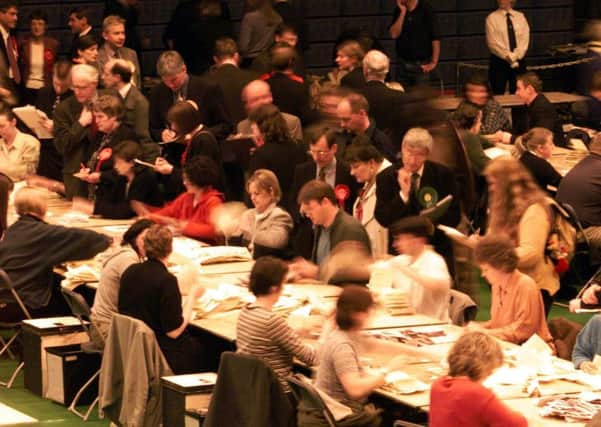Scottish Parliament is divided on independence but its future is bright – Kezia Dugdale


TWENTY years ago today newspapers, television, radio and the public were poring over the results of the first post-devolution elections to be held to the Scottish Parliament.
It was a historic night for Scottish Labour, returning 56 MSPs and collectively gathering almost one million votes from the Scottish people. The MSPs ensured Labour came good on the promise to deliver a Scottish Parliament, laying the foundations of an institution that would both evolve and endure.
Advertisement
Hide AdAdvertisement
Hide AdIn the Scottish Parliament’s first two decades it has enabled and delivered huge advances in social justice and a debt of gratitude is owed to every one of those 56 people elected on that historic night in 1999. Only through the hard work of the first term of the Scottish Parliament, where the groundwork was laid, have we now been able to achieve so much.
The story of the early years of Scottish Parliament is one of co-operation and commitment to put aside cross-party differences in the national interest. The first administrations were of course Liberal Democrat and Labour coalitions that helped deliver even greater democracy through voting reform in Scotland through the Local Governance (Scotland) Act 2004, that saw council elections reorganised and a new system of STV used to elect councillors in 2007, although that was a night to be remembered for all the wrong reasons.
Labour used its stewardship of the Parliament as Donald Dewar envisaged it, as a voice for the future, delivering monumental change for the people of Scotland.
An end to the homophobic Section 28, significant reform of land ownership, the scrapping of tuition fees, the introduction of free bus travel for the elderly and free personal care, the smoking ban. A right to a roof over your head and some of the world’s most ambitious mental health legislation.
Advertisement
Hide AdAdvertisement
Hide AdThe Scottish Parliament has always been a standard-bearer for how good our politics can be. With determination and drive, politics can deliver a better world, if we use the powers boldly, wisely and collegiately.
I’ve been privileged to work in the Scottish Parliament for 12 years now, first for Lord George Foulkes during his time as an MSP and then, since 2011, as an elected member of the Parliament.
I have always been passionate about bringing power closer to the people we seek to represent and firmly believe the Scottish Parliament has been able to do that. Undoubtedly, the first 20 years of the Scottish Parliament will be written up in the history books as a success, securing real change in the lives of everyday Scots after a tricky and unpopular start. The untimely death of Donald Dewar and the mutating costs of the new building created huge stumbling blocks in the public’s love affair with the Parliament project.
There is plenty of unfinished business for the Scottish Parliament, and what the Parliament does next will define it. We know that it is a place that can deliver transformational legislation to make Scotland a better place to live and work, but we also know it’s increasingly becoming a place for constitutional battles.
Advertisement
Hide AdAdvertisement
Hide AdAs Brexit divides the UK parliament, independence divides the Scottish Parliament. In the midst of arguing over borders and flags, it’s so important that we don’t lose sight of the real issues that matter to ordinary people: rising child poverty, a climate change emergency, a crisis in our NHS and social care, and ever-greater cuts to our schools and local authority public services. Over the last 20 years, the Scottish people have voted for their own Parliament, to remain in the UK and the EU. Meanwhile its love affair with Labour has slipped into a new passion for the SNP. Only time will tell if that’s the settled will of the Scottish people.
One thing’s for sure though, the Parliament is here to stay, and as it enters its 21st year it now operates with a maturity and an optimism which surely means the future can only be a bright one.